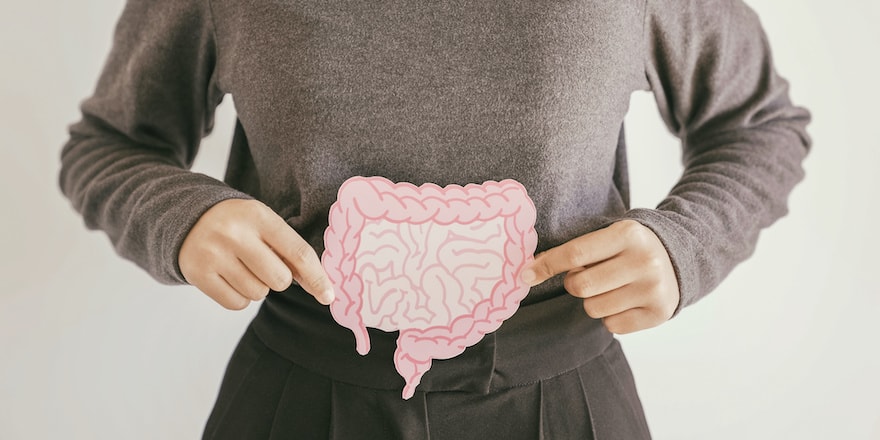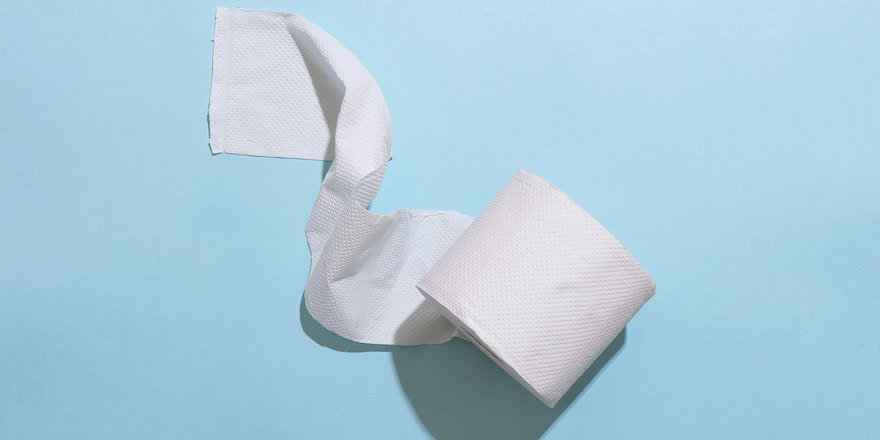The intestine is a key organ in well-being and overall health: digestion of food, immune barrier, nutrient synthesis. It plays a role in many biological functions.
It is also considered our second brain because of its own nervous system that contains more than 100 million neurons, as well as the constant communications it maintains with the brain.
Its balance remains precarious and intestinal disorders are common: they affect nearly 50% of French people according to a study by Ifop.
When intestinal transit slows and the intestinal muscles become less active, it is called a sluggish intestine.
Intestinal sluggishness can be uncomfortable and disabling in everyday life. However, it is not inevitable. I recommend implementing these 5 natural remedies to stimulate peristaltic movements and relieve your abdomen.
📚 Read also | Géraldine Dubois, physician and nutrition expert, analyzed 15 probiotics
1. Stay hydrated throughout the day

Consuming at least 1.5 L of water per day, or even 2 L in cases of high heat or physical activity, is essential for maintaining fluid balance and ensuring organs function properly.
But it’s also crucial for hydrating stools and facilitating their passage through the intestines. This is highlighted by this study. So, always keep a glass of water within reach!
To make things easier for you, I recommend eating fruits and vegetables high in water (cucumber, tomato, melon …), and drinking herbal teas. Certain plants can also improve digestive functions like aloe vera, peppermint, ginger or fennel.
2. Adopt a varied, fiber-rich diet

Fibers soluble and insoluble are the best allies for digestion, and have many benefits for digestive health according to this study.
📚 Also read | Our tips for choosing the right psyllium
They have the ability to increase stool volume and stimulate intestinal contractions. You can find them in fruits and vegetables, but also in legumes and whole grains.
At the same time, I recommend taking care of your gut microbiota by limiting refined sugars and processed fats.
🎧 Listen to our podcast | Fibers: a how-to guide
3. Exercise every day

Don’t worry, you don’t need to do a 1.5-hour session every day to stimulate your intestines. However, moving regularly throughout the day activates peristaltic movements and helps promote healthy bowel function.
Walking and swimming are two good activities for digestive health.
And if you suffer from bloating or stomach pain, certain yoga poses like the deep squat or the wind-release pose can stimulate digestion and free you from trapped gas.
4. Practice abdominal massage

If you have abdominal pain or bloating, and to stimulate contractions, abdominal massages can be very effective.
For 5 minutes, with your hands flat placed above your navel, slowly massage using circular motions.
5. The right position to make bowel movements easier

If you have difficulty passing stool, you can promote proper alignment of your colon by raising your knees above your hips.
I recommend using a footrest or a stool to maintain this position comfortably.
Sluggish intestine or constipation: how to tell the difference?
Although they are often confused, constipation and intestinal sluggishness refer to slightly different conditions.
Unlike a lazy intestine, constipation is considered a medical condition by the WHO. It is characterized by the passage of fewer than three stools per week or very hard stools that are difficult to expel.
As for intestinal sluggishness, it refers to the overall slowing of intestinal transit. It can therefore cause constipation, but constipation does not necessarily originate from a sluggish intestine.
What are the causes of a sluggish intestine?
A lazy intestine rarely results from a disease. It often stems from:
- from a lack of hydration : water stimulates intestinal contractions (peristaltic movements)
- from an unbalanced diet low in fiber and high in refined sugars and saturated fats that can disrupt the gut microbiota
- hormonal disturbances such as hypothyroidism, female hormonal changes, Cushing’s syndrome, or type II diabetes
- a sedentary lifestyle
Recognize a sluggish intestine by 5 symptoms
If you still have doubts and think you might have a slightly sluggish intestine, here are 5 symptoms that may suggest it:
- bloating: as food spends more time in the intestines, commensal bacteria ferment food residues more, resulting in gas production that accumulates and is difficult to expel
- a sensation of heaviness due to the buildup of stool along the digestive tract, possibly even pain
- a functional constipation, with infrequent, hard stools that are difficult to pass, and a sensation of incomplete evacuation
- stomach pain
- a irritability, as shown by this study
When intestinal sluggishness is coupled with constipation, it can result in the appearance of fecaloma, anal fissure, hemorrhoids, or rectal prolapse.
Sources and scientific studies
- Digestive disorders: when should you consult?, Ifop survey
- Constipation: a global approach, 2010, World Gastroenterology Organization Global Guidelines
- Gkalonaki I, Patoulias I, 2021 Dysfunctional elimination syndrome: a short review of the literature.
- Margolis KG, Cryan JF, Mayer EA., 2021,The Microbiota-Gut-Brain Axis: From Motility to Mood. Gastroenterology. 2021
- Ahmed M. El-Sharkawy, et al., 2015, Acute and chronic effects of hydration status on health
- Anderson JW et al., 2009, Health benefits of dietary fiber.



